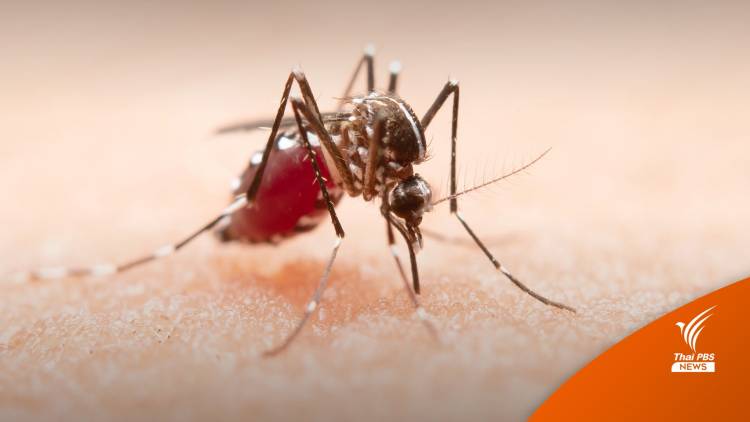
Thailand's Disease Control Department is advising people to protect themselves against mosquito bites, saying that dengue fever, which is carried by mosquitos, is likely to become more widespread this year.
Two of the 193 people infected with the disease since January 1st have died.
Disease Control Department Director-General Dr. Opart Karnkawinpong said today (Tuesday) that instances of dengue fever had reduced over the past two years as many people stayed home during the COVID-19 pandemic, but it is staging a comeback this year as the herd immunity is starting to drop.
He pointed out that, in January, two dengue fever patients, one aged 37 and the other, 40, succumbed to the disease because, initially, they were unaware that they were infected by the dengue virus and sought treatment at a clinic or simply took over the counter medications.
He explained that the non-steroidal anti-inflammatory drug group (NSAIDs), which were used to ease the fever, can cause internal bleeding, particularly aspirin or diclofenac instead of using paracetamol, and can put the patient at risk of death.
Most of the 193 patients diagnosed with dengue fever were found in Bangkok, Samut Prakan and Nakhon Pathom, with 61 in the 5-14 age group and 48 in 15-24 age group.
The general symptoms of dengue fever include a high fever throughout the day for 2-7 days, head and muscle aches, red spots on the hands, legs and body, nausea, stomach ache, loss of appetite, but no runny nose.
Dr. Opart said that patients may develop severe symptoms and may collapse from shock or die, as he advised family members of the patients to monitor their condition closely.
He suggested that patients be taken to see a doctor if their fever does not reduce in two days, despite being given medication to lower the temperature or cooling body wiping.
Other recommendations include eradication of mosquito larvae in all water containers and ponds by disposing of the water, putting Abate larvicide or larvae-eating fish in the water.